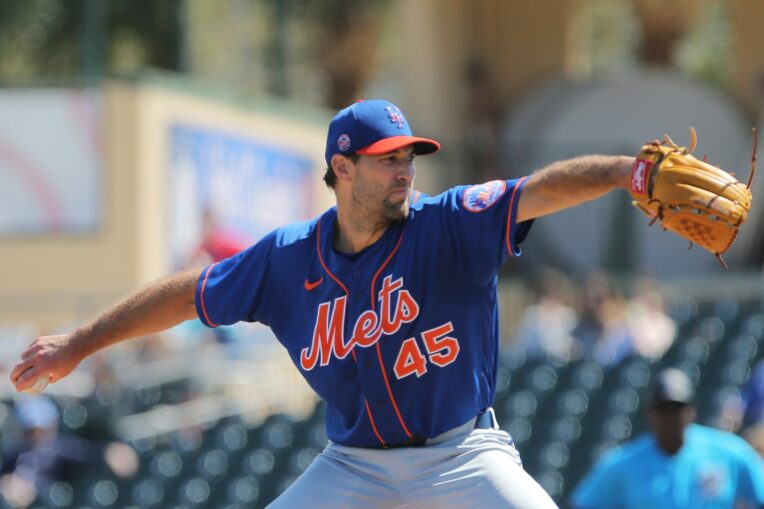
After producing a 4.76 ERA and 5.61 FIP in 2019, a strong spring training is exactly what Michael Wacha needed. The former all-star – and 2012 first round pick – tossed two scoreless innings in his first start against the Tigers, and he fired three scoreless yesterday against the Marlins.
While these outings are encouraging first signs, he needs to keep impressing in order to pry a rotation spot away from Steven Matz or Rick Porcello.
As a rookie in 2013, Wacha experienced immediate success. He posted a 2.78 ERA over 64.2 innings while striking out 65 batters. He also recorded a combined 3.95 ERA and 3.69 FIP over the next four seasons, but Wacha has struggled during the last two years.
What’s most concerning about Wacha’s 2018 and 2019 performance is the sudden decline in his FIP and K/BB ratio.
2014-2017
3.69 FIP and 2.72 K/BB
2018-2019
5.05 FIP and 1.92 K/BB
Can Wacha reverse this trend? Given that he’s still only 28-years-old and has shown an increase in velocity this spring, a rebound from Wacha is certainly a possibility. There’s no denying that he was solid starter at his peak, and if he’s regained his velocity, he might be able to recapture some of that success.
But Wacha needs to prove it over a larger sample size before he can be trusted in the rotation again. Sure, Porcello also had a rough 2019 with a 5.52 ERA and 4.76 FIP, but he’s more proven as a backend starter. Over the past four seasons, he’s made 30 or more starts every year, averaged 2.8 WAR, and also pitched against tougher competition in the hard-hitting AL East.
Moreover, Matz also outperformed Wacha last season with a better ERA (4.21),WHIP (1.34), FIP (4.60), and K/BB (2.94). And for what it’s worth, Porcello and Matz have both pitched well in their two starts this spring as well. They have each allowed just one run in three innings pitched.
Unnless Wacha significantly outpitches Matz and Porcello for the rest of this spring, he’s still best suited as the Mets’ long reliever and spot starter. Wacha’s velocity uptick could help make him an effective weapon out of the pen, especially since he’ll only pitching a few innings at a time. He will also provide much better depth as a replacement starter than any of the Mets options in previous seasons.
So, even if Wacha doesn’t earn the rotation spot out of spring training, he could still be a valuable piece for the 2020 Mets, and he might be one of the team’s best under-the-radar moves of the offseason.















